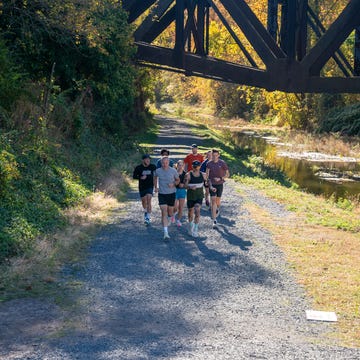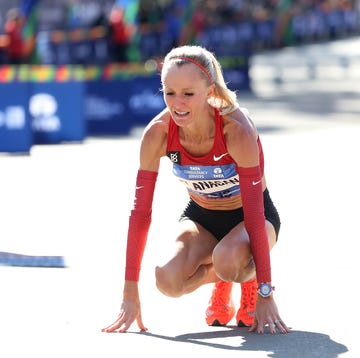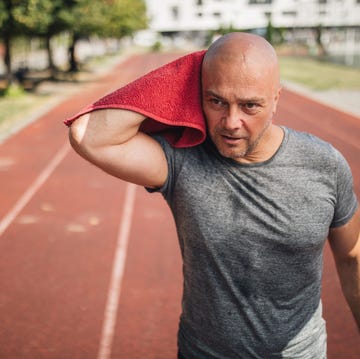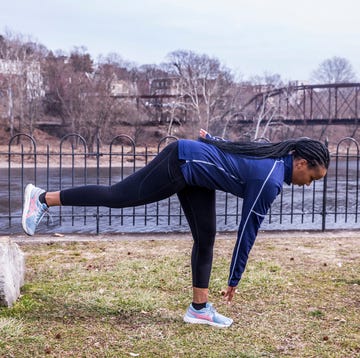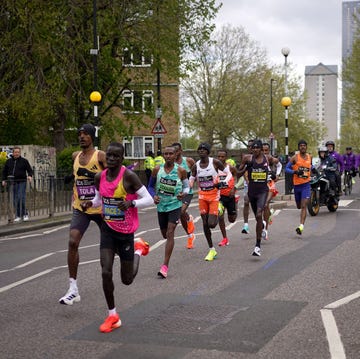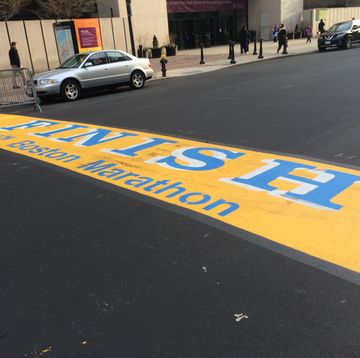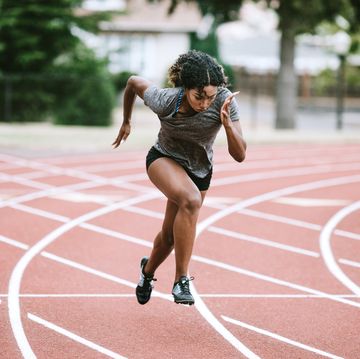On June 28, in front of the Hayward Field faithful, Eric Jenkins traded in his University of Oregon colors for a Nike singlet, and placed seventh in the 5,000 meters at the USATF Outdoor Championships. The new professional is now overseas with hopes of improving upon his PR of 13:18.57. He has already set PRs in the 3,000 meters, running 7:41.79 to win in Lignano, Italy, and 1500 meters, running 3:38.98 in Kortrijk, Belgium. On July 18, in Heusden, Beligum, he set a new PR in the 5,000 meters, running 13:07.33.
After the summer track season, he'll turn his attention to making the U.S. teams for next year’s world indoor championships (to be held in Portland in March, 2016) and Olympics.
Jenkins won two individual titles at the NCAA Indoor Championships in March, and, along with teammate Edward Cheserek, was part of one of the most dominant one-two punches in NCAA distance running history. After transferring to Oregon from Northeastern in 2013, the New Hampshire native patiently put a history of injuries behind him and flourished under the guidance of Coach Andy Powell. In his brief, but highly decorated time as a Duck, Jenkins was part of three national championship teams.
Looking back at your time at Oregon, is there a particular accomplishment youre most proud of Running Times As noted above, Jenkins has set PRs in Italy and Belgium and will race the 5,000 meters on Saturday.
RT: Will your approach change now that youre running against deeper fields of professionals?
EJ: I probably won’t make a decision until the season’s over. Obviously, Nike has several deep and talented groups. I’m open to all the possibilities, but nothing’s decided yet. I’m going to keep working with Coach Powell for the time being.
RT: What did you consider when choosing to sign with Nike?
EJ: Nike showed the most interest in me. I talked with some other people, but Nike made it known that they wanted me, and made me feel like I was important to them. Their ties to Oregon just made it feel very comfortable.
RT: Coach Powell has done a great job of keeping you healthy throughout the cross country, indoor, and outdoor seasons this past year. How many races do you think you’ll run this summer before you shut it down?
EJ: He really has. But it’s been a long year, and I’m getting to the point where I’m starting to feel that a little bit. After we see how this weekend goes, I’ll sit down with Coach Powell and my agent Ray Flynn to plan things out. But I can’t imagine running more than three or four races.
I’m definitely planning on going overseas to Europe. [Health - Injuries] I’m looking forward to getting in some fast races—it’s been a while since I’ve had the chance to test myself in that way.
RT: Will your approach change now that you’re running against deeper fields of professionals?
EJ: The whole focus this year was on NCAAs and then signing a contract. Now that those two things are done, it’s not like I’m putting my feet up, like, “Hey, it’s summer vacation,” but I’ll try my best to enjoy myself in these races and not overthink them.
RT: Do you have a favorite workout?
I’ve looked up to Matthew Centrowitz for a while. It’s not easy to transition from being a collegiate to being a professional, and he’s just been so successful at it. It’s inspiring. As for me, there haven’t been that many plateaus in my career so far—I’ve managed to improve just about every year. And hopefully I can keep doing that.
RT: How to Better Pace a Marathon Based on Effort?
EJ: It’s interesting—both good and bad—knowing that the toughest guy to beat in the country is your training partner. That being said, there are other guys like Will Geoghegan who are not very far behind us in workouts. The atmosphere around this team is going to be hard to replicate.
RT: There’s a ton of speculation about just how competitive you are with Cheserek. What was your mindset going into those national championship races against him, especially the 10,000?
EJ: I definitely thought I could beat him over that last 400. It wasn’t like I was very far off. With 200 to go I thought I was going to do it. I just tied up a little bit towards the finish. I honestly don’t get the opportunity very often to race Ed. Coach Powell does a really good job of holding us back. It’s a long season, and the more energy we have going into the big races the better. We don’t want to kill ourselves when we don’t need to.
At indoor nationals, I was able to take races from far out, and kind of string things out, and maybe I would have tried that at outdoors, except the weather didn’t work out with all the wind. So Coach Powell sat me down and came up with the best race strategy for me to beat Ed. And he sat Ed down and came up with the best strategy for him to beat me.
RT: All About 75 Hard?
EJ: I can’t give too much away because Coach Powell wouldn’t be happy with me. But one of my staples is doing really hard mile repeats. A lot of guys can’t stand it—they’d rather do 400 meter repeats and speed stuff. But I just love those hard mile repeats.
RT: Do you ever get competitive in workouts like that, and try to measure yourself against Edward?
EJ: Coach Powell’s workouts are hard enough where as soon as you hear them, you get a little intimidated. By the end of the workout no one’s really racing, and if it did start happening, Coach Powell would put the lid on that. None of us want to get injured because we’re getting carried away in practice.
RT: Looking back at your time at Oregon, is there a particular accomplishment you’re most proud of?
EJ: It was probably indoors this year. For one, I won my first NCAA championship individually. And the way we won the team title was so fun—everyone on the team that went to that meet was so close. It was mostly just distance guys, with one thrower, one sprinter—and it was so cool to dominate with primarily distance guys like that.
RT: You seem to have a natural ease in front of a microphone. How important is it to show your personality in track & field?
EJ: This is a sport where you don’t get too many opportunities to show the fans who you really are. We’re not like basketball players; we’re barely on television. So when the chance comes up to be myself, I always take it.


